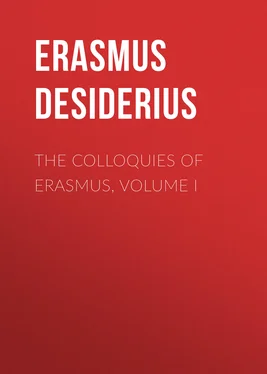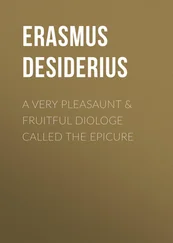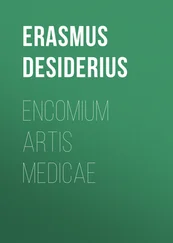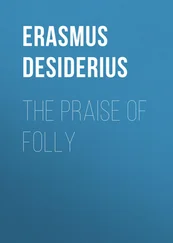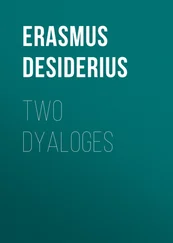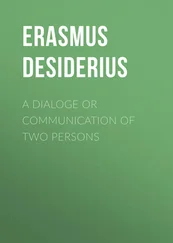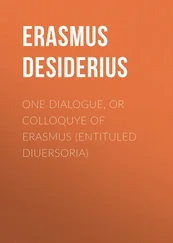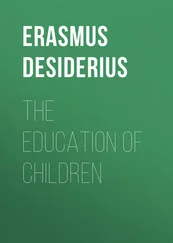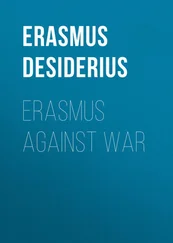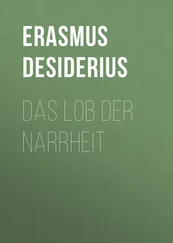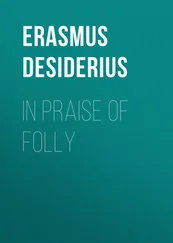Desiderius Erasmus - The Colloquies of Erasmus, Volume I
Здесь есть возможность читать онлайн «Desiderius Erasmus - The Colloquies of Erasmus, Volume I» — ознакомительный отрывок электронной книги совершенно бесплатно, а после прочтения отрывка купить полную версию. В некоторых случаях можно слушать аудио, скачать через торрент в формате fb2 и присутствует краткое содержание. Жанр: foreign_prose, foreign_antique, на английском языке. Описание произведения, (предисловие) а так же отзывы посетителей доступны на портале библиотеки ЛибКат.
- Название:The Colloquies of Erasmus, Volume I
- Автор:
- Жанр:
- Год:неизвестен
- ISBN:нет данных
- Рейтинг книги:5 / 5. Голосов: 1
-
Избранное:Добавить в избранное
- Отзывы:
-
Ваша оценка:
- 100
- 1
- 2
- 3
- 4
- 5
The Colloquies of Erasmus, Volume I: краткое содержание, описание и аннотация
Предлагаем к чтению аннотацию, описание, краткое содержание или предисловие (зависит от того, что написал сам автор книги «The Colloquies of Erasmus, Volume I»). Если вы не нашли необходимую информацию о книге — напишите в комментариях, мы постараемся отыскать её.
The Colloquies of Erasmus, Volume I — читать онлайн ознакомительный отрывок
Ниже представлен текст книги, разбитый по страницам. Система сохранения места последней прочитанной страницы, позволяет с удобством читать онлайн бесплатно книгу «The Colloquies of Erasmus, Volume I», без необходимости каждый раз заново искать на чём Вы остановились. Поставьте закладку, и сможете в любой момент перейти на страницу, на которой закончили чтение.
Интервал:
Закладка:
Vi. Well, 'tis done, provided you'll go before playing upon a Pipe.
Lau. It is very hot.
Vi. That is not strange when it is Midsummer.
Lau. Swimming is better.
Vi. I don't love to live like a Frog, I am a Land Animal, not an amphibious one.
Lau. But in old Time this was look'd upon to be one of the most noble Exercises.
Vi. Nay, and a very useful one too.
Lau. For What?
Vi. If Men are forc'd to fly in Battel, they are in the best Condition that can run and swim best.
Lau. The Art you speak of is not to be set light by; it is as Praise-worthy sometimes to run away nimbly as it is to fight stoutly.
Vi. I can't swim at all, and it is dangerous to converse with an unaccustomed Element.
Lau. You ought to learn then, for no Body was born an Artist.
Vi. But I have heard of a great many of these Artists that have swum in, but never swam out again.
Lau. First try with Corks.
Vi. I can't trust more to a Cork than to my Feet; if you have a Mind to swim, I had rather be a Spectator than an Actor.
THE CHILD'S PIETY
This Discourse furnishes a childish Mind with pious Instructions of Religion, in what it consists. What is to be done in the Morning in Bed, at getting up, at Home, at School, before Meat, after Meat, before going to Sleep. Of beginning the Day, of praying, of behaving themselves studiously at School, Thriftiness of Time: Age flies. What is to be done after Supper. How we ought to sleep. Of Behaviour at holy Worship. All Things to be applied to ourselves. The Meditation of a pious Soul at Church. What Preachers are chiefly to be heard. Fasting is prejudicial to Children. Confession is to be made to Christ. The Society of wicked Persons is to be avoided. Of the prudent chusing a Way of Living. Holy Orders and Matrimony are not to be entred into before the Age of Twenty-two. What Poets are fit to be read, and how.
ERASMUS, GASPAR.
ERASMUS. Whence came you from? Out of some Alehouse?
Ga. No, indeed.
Er. What from a Bowling Green?
Ga. No, nor from thence neither.
Er. What from the Tavern then?
Ga. No.
Er. Well, since I can't guess, tell me.
Ga. From St. Mary's Church.
Er. What Business had you there?
Ga. I saluted some Persons.
Er. Who?
Ga. Christ, and some of the Saints.
Er. You have more Religion than is common to one of your Age.
Ga. Religion is becoming to every Age.
Er. If I had a Mind to be religious, I'd become a Monk.
Ga. And so would I too, if a Monk's Hood carried in it as much Piety as it does Warmth.
Er. There is an old Saying, a young Saint and an old Devil.
Ga. But I believe that old Saying came from old Satan: I can hardly think an old Man to be truly religious, that has not been so in his young Days. Nothing is learn'd to greater Advantage, than what we learn in our youngest Years.
Er. What is that which is call'd Religion?
Ga. It is the pure Worship of God, and Observation of his Commandments.
Er. What are they?
Ga. It is too long to relate all; but I'll tell you in short, it consists in four Things.
Er. What are they?
Ga. In the first Place, that we have a true and pious Apprehension of God himself, and the Holy Scriptures; and that we not only stand in Awe of him as a Lord, but that we love him with all our Heart, as a most beneficent Father. 2. That we take the greatest Care to keep ourselves blameless; that is, that we do no Injury to any one. 3. That we exercise Charity, i.e. to deserve well of all Persons (as much as in us lyes). 4. That we practise Patience, i.e. to bear patiently Injuries that are offered us, when we can't prevent them, not revenging them, nor requiting Evil for Evil.
Er. You hold forth finely; but do you practise what you teach?
Ga. I endeavour it manfully.
Er. How can you do it like a Man, when you are but a Boy?
Ga. I meditate according to my Ability, and call myself to an Account every Day; and correct myself for what I have done amiss: That was unhandsomely done this saucily said, this was uncautiously acted; in that it were better to have held my Peace, that was neglected.
Er. When do you come to this Reckoning?
Ga. Most commonly at Night; or at any Time that I am most at Leisure.
Er. But tell me, in what Studies do you spend the Day?
Ga. I will hide nothing from so intimate a Companion: In the Morning, as soon as I am awake, (and that is commonly about six a Clock, or sometimes at five) I sign myself with my Finger in the Forehead and Breast with the Sign of the Cross.
Er. What then?
Ga. I begin the Day in the Name of the Father, Son, and holy Spirit.
Er. Indeed that is very piously done.
Ga. By and by I put up a short Ejaculation to Christ.
Er. What dost thou say to him?
Ga. I give him Thanks that he has been pleased to bless me that Night; and I pray him that he would in like Manner prosper me the whole of that Day, so as may be for his Glory, and my Soul's Good; and that he who is the true Light that never sets, the eternal Sun, that enlivens, nourishes and exhilarates all Things, would vouchsafe to enlighten my Soul, that I mayn't fall into Sin; but by his Guidance, may attain everlasting Life.
Er. A very good Beginning of the Day indeed.
Ga. And then having bid my Parents good Morrow, to whom next to God, I owe the greatest Reverence, when it is Time I go to School; but so that I may pass by some Church, if I can conveniently.
Er. What do you do there?
Ga. I salute Jesus again in three Words, and all the Saints, either Men or Women; but the Virgin Mary by Name, and especially that I account most peculiarly my own.
Er. Indeed you seem to have read that Sentence of Cato, Saluta libenter , to good Purpose; was it not enough to have saluted Christ in the Morning, without saluting him again presently? Are you not afraid lest you should be troublesome by your over Officiousness?
Ga. Christ loves to be often called upon.
Er. But it seems to be ridiculous to speak to one you don't see.
Ga. No more do I see that Part of me that speaks to him.
Er. What Part is that?
Ga. My Mind.
Er. But it seems to be Labour lost, to salute one that does not salute you again.
Ga. He frequently salutes again by his secret Inspiration; and he answers sufficiently that gives what is ask'd of him.
Er. What is it you ask of him? For I perceive your Salutations are petitionary, like those of Beggars.
Ga. Indeed you are very right; for I pray that he, who, when he was a Boy of about twelve Years of Age, sitting in the Temple, taught the Doctors themselves, and to whom the heavenly Father, by a Voice from Heaven, gave Authority to teach Mankind, saying, This is my beloved Son, in whom I am well pleased, hear ye him ; and who is the eternal Wisdom of the most high Father, would vouchsafe to enlighten my Understanding, to receive wholesome Learning, that I may use it to his Glory.
Er. Who are those Saints that you call peculiarly yours?
Ga. Of the Apostles, St. Paul ; of the Martyrs, St. Cyprian ; of the Doctors, St. Jerome ; of the Virgins, St. Agnes .
Читать дальшеИнтервал:
Закладка:
Похожие книги на «The Colloquies of Erasmus, Volume I»
Представляем Вашему вниманию похожие книги на «The Colloquies of Erasmus, Volume I» списком для выбора. Мы отобрали схожую по названию и смыслу литературу в надежде предоставить читателям больше вариантов отыскать новые, интересные, ещё непрочитанные произведения.
Обсуждение, отзывы о книге «The Colloquies of Erasmus, Volume I» и просто собственные мнения читателей. Оставьте ваши комментарии, напишите, что Вы думаете о произведении, его смысле или главных героях. Укажите что конкретно понравилось, а что нет, и почему Вы так считаете.
